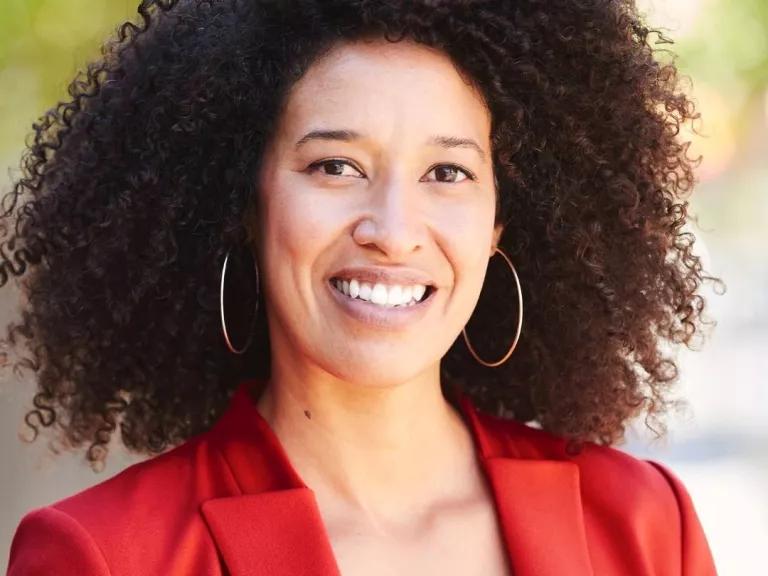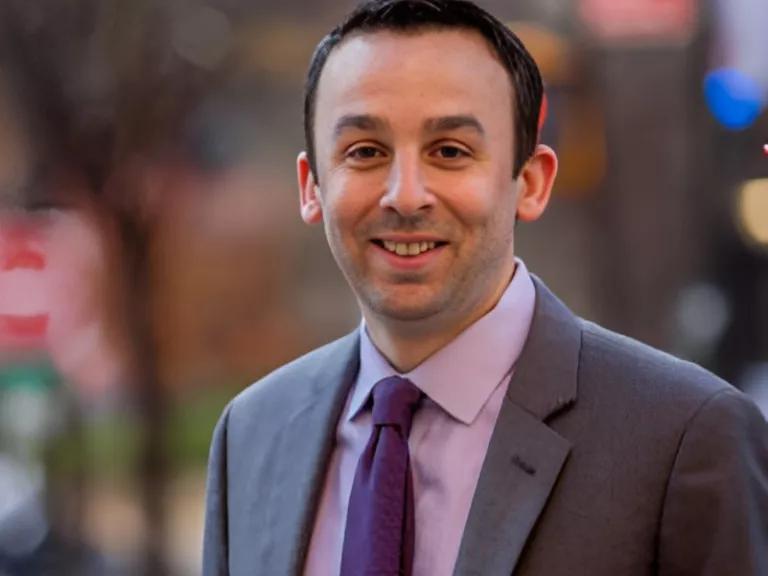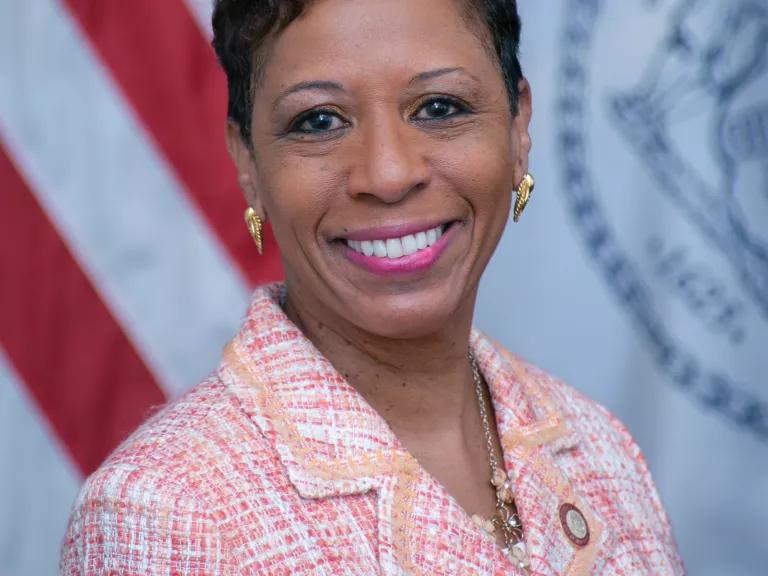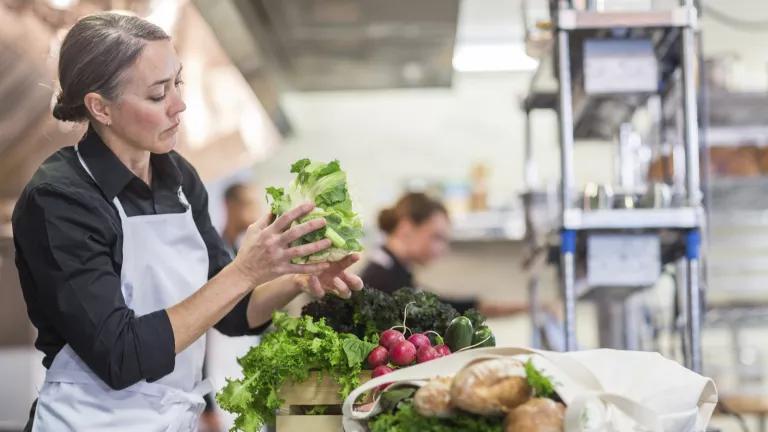Major NYC Environmental Advance: City Council to Pass Universal Organics Collection Law
New York City Council is poised to pass a law that would mandate organics collection.
UPDATE: On July 8, 2023, 30 days after its passage, the bill automatically became law.
UPDATE: On June 8, 2023, the New York City Council voted to enact the universal curbside organics collection legislation discussed in this blog by a vote of 43 to 7. The bill now goes to Mayor Eric Adams, who is likely to sign it into law.
Legislation that would establish a mandatory program for the curbside collection of food scraps, yard waste, and food-soiled paper from every household is expected to be passed by the New York City Council—creating what is expected to become the largest municipal organics waste diversion program in the nation.
If successfully implemented, the organics collection law will mark a major environmental turnabout in solid waste handling in New York. Food scraps, yard waste, and food-soiled paper account for the single-largest portion of the residential waste stream—as much as 4,000 tons a day.
Currently, the overwhelming bulk of this trash is sent to landfills or incinerators. But when organics are buried in landfills, they decompose and emit methane—a potent, climate-destroying gas. And when organics are mixed with other waste at an incinerator, the high moisture content of these materials interferes with the burning process, leading to the emission of dioxins and other air pollutants.
Making matters worse, the landfills and incinerators that New York City relies upon are often located in low-income neighborhoods or communities of color, such as the Essex County incinerator in Newark, New Jersey. Cutting back on the organics sent to such facilities, then, will also advance environmental justice objectives.
Once the program is fully implemented citywide, which is expected by October 2024, large volumes of food scraps and yard waste collected by the New York City Department of Sanitation will be transported to composting facilities or anaerobic digesters, both of which are environmentally preferable to landfills and incinerators.
The New York City universal organics collection legislation—Intro 244-A—has been spearheaded in the city council by Council Members Sandy Nurse and Shahana Hanif. The bill is one of five initiatives that are moving forward in a Zero Waste legislative package, shepherded through the council by Majority Leader Keith Powers with the support of Speaker Adrienne Adams.
In composting, organics like food scraps and yard waste are broken down in a natural biological process; the resulting finished compost is a useful, soil-like product that serves as a natural fertilizer and soil stabilizer, aiding in the growth of crops, street trees, gardens, and houseplants.
In an anaerobic digester, the organic materials are broken down in an enclosed tank, allowing for the methane to be captured and used to produce energy, replacing fossil fuels.
The idea of composting organics has been around in New York City for decades. For example, in 1990, the Lower East Side Ecology Center established a drop-off site at a vacant lot in the East Village—where residents could hand off food scraps to volunteers who transformed the organics into a useful soil amendment—providing environmental education and strengthening neighborhood cohesion at the same time.
That same year, the Department of Sanitation began a pilot project to compost leaves at a facility located adjacent to what was then the Edgemere Landfill in southern Queens. And in 1993, the department created the New York City Compost Project to teach residents the techniques of composting and encourage neighborhood-based community composting operations.
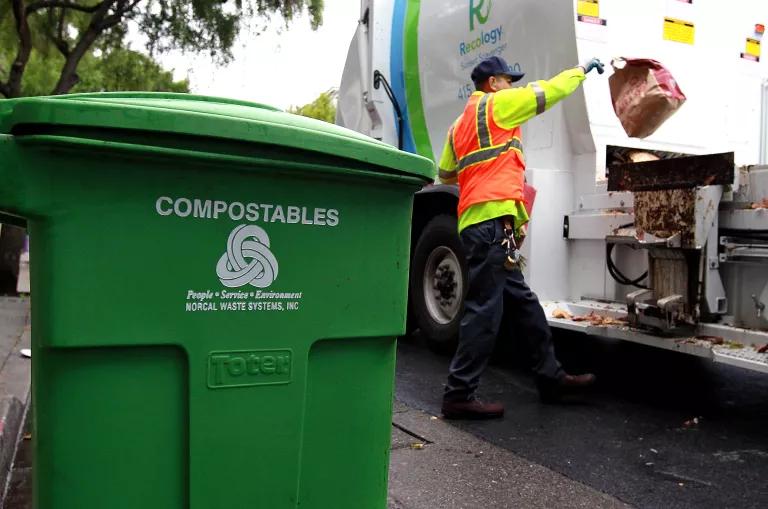
San Francisco has been running a successful curbside food scrap composting collection program, supported by a consistent public education effort with multilingual outreach materials, for more than a decade.
Justin Sullivan/Getty Images
In 2011, the GrowNYC Compost Program was established, creating food scrap drop-off sites at dozens of Greenmarkets around the city and enabling New Yorkers to ensure that their organics were kept out of landfills and incinerators and handled more sustainably.
A major turning point came in 2013, when then mayor Mike Bloomberg called food waste “New York City’s final recycling frontier,” and urged the creation of a citywide organics collection program. Then speaker Christine Quinn led the city council in creating a voluntary curbside organics collection pilot program.
Former mayor Bill de Blasio also spoke in favor of a citywide organics collection program and put the idea front and center in his 2015 sustainability plan, OneNYC. But in 2020, in the midst of the COVID-19 pandemic, the de Blasio administration drastically reduced the curbside pilot collections that were then serving only selected city neighborhoods.
Last fall, under Mayor Eric Adams, Sanitation Commissioner Jessica Tisch announced a new demonstration—voluntary curbside collections throughout the entire borough of Queens. The success of that program led Mayor Adams to say that voluntary curbside collection programs will be expanded citywide and reach all households by October 2024.
But the experience in other cities with successful organics collections programs has proven that municipalities must make such programs mandatory and build public support to ensure their effectiveness.
So the city council’s legislative push is an essential and most welcome response. Cities like Seattle have demonstrated that curbside organics collection programs are not only useful in curbing global warming emissions, but in saving money for local taxpayers too.
The city council legislative breakthrough would not have been possible without the active engagement of community composters and local activists across all five boroughs, the citizen-run Solid Waste Advisory Boards, and the Save Our Compost coalition.
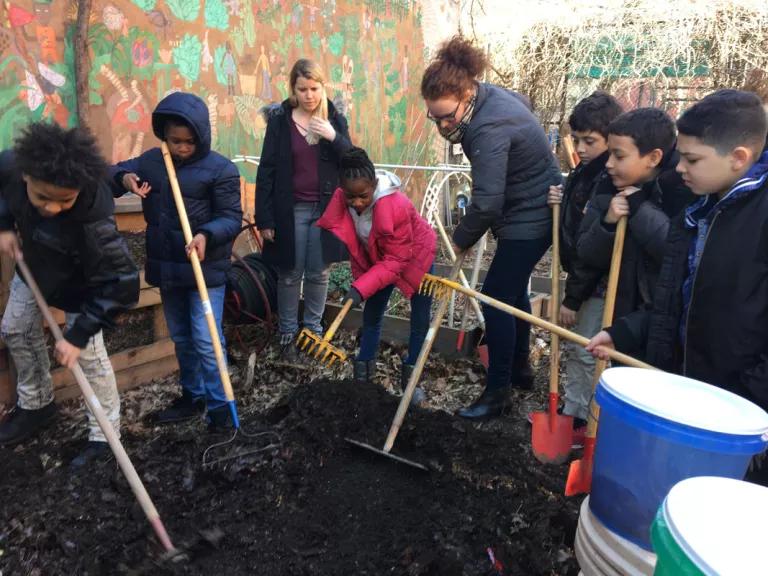
Composting programs can save taxpayer dollars, help community gardens in all 5 boroughs and teach NYC kids about nature.
Cafeteria Culture
In our next blog, we will focus on the four other bills in the council’s significant Zero Waste legislative package.
This blog provides general information, not legal advice. If you need legal help, please consult a lawyer in your state.


